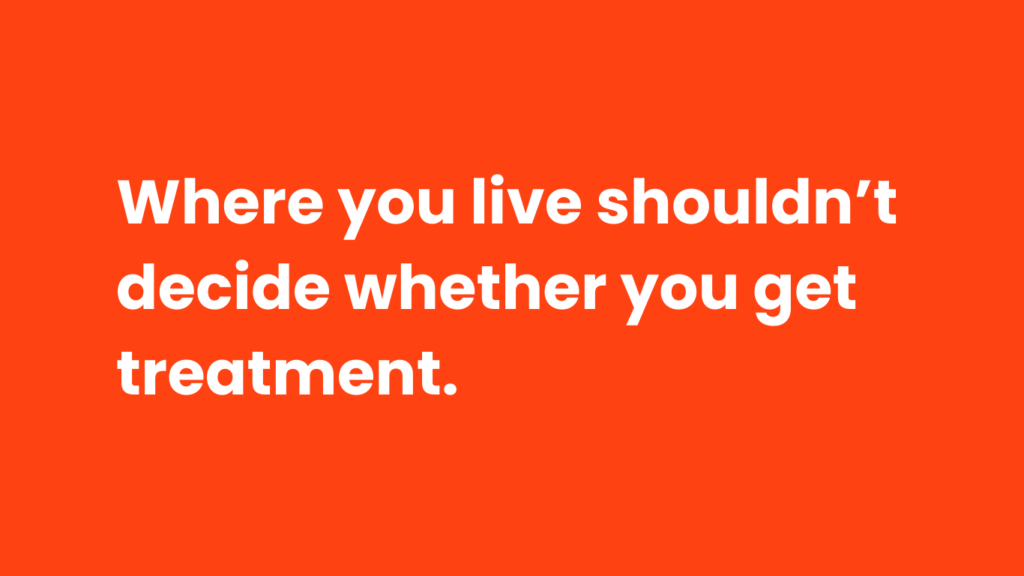Over the last couple of months, we’ve been working hard to push for access to givinostat, a promising treatment for Duchenne muscular dystrophy. While the treatment is being assessed for use on the NHS, the manufacturer is providing it to the NHS free of charge. However, many families have struggled to access givinostat because hospitals haven’t had the resources needed to deliver it. Now, we’re starting to see real movement.
Givinostat access: progress made and the work still to do

Progress across the UK
Thanks to the dedication of families, patient advocates, and clinical teams across the NHS, more children with Duchenne muscular dystrophy are beginning to access givinostat through the Expanded Access Programme (EAP). You can find out why access has been so difficult in our previous blog.
In recent weeks, we’ve seen more NHS Trusts and Health Boards agree to take part. NHS Greater Glasgow and Clyde and Great Ormond Street Hospital have begun reaching out to families of eligible boys, marking a major step forward. They join others, including University Hospitals of Leicester and services in South Wales, which are already offering the treatment.
Crucially, Great Ormond Street Hospital – one of the UK’s largest children’s hospitals – had initially been unable to participate due to capacity challenges. Their decision to now offer the treatment shows that access barriers can be overcome.
There’s still more to do
While we’re encouraged by this progress, access to givinostat remains uneven across the UK. Too many families are still waiting to access this potentially life-changing treatment.
We’ve contacted Health Ministers in England, Scotland, Wales, and Northern Ireland to raise these concerns. So far, only Mike Nesbitt, Minister for Health in Northern Ireland, has responded. He stated that neither the Belfast Health and Social Care Trust nor the Department of Health has been able to secure the funding needed and are currently unable to offer the EAP.
This highlights the disparities families are facing and the continued need for action to ensure that everyone, no matter where they live, has equal access to treatment.
Taking action together
We’re continuing to press NHS leaders and politicians, raise awareness through the media, and support families across the UK. But we know we’re stronger together and with your help, we can keep the momentum going and push for fair, timely access to treatments.
Here’s how you can take action:
Engage with your clinicians and NHS bodies
- Contact your NHS Trust or Health Board: These are the decision makers – it is up to each local NHS Trust or Board to decide whether a centre will take part in the Expanded Access Programme. Ask if the treatment is under local review, available via a clinical trial or special funding pathway. To contact your local NHS Board or Trust, visit the official NHS website for your country (England, Scotland, Wales, or Northern Ireland), search by postcode or region, and use the contact details listed for your local provider. If you would like a template letter to send to your NHS Trust or Health Board, email info@musculardystrophyuk.org.
- Talk to your clinician or specialist: They may be able to advocate on you and your child’s behalf.
Contact your parliamentarian
- Write to or ask to meet with your MP/MSP/MLA: Ask them to raise your concerns in Parliament, with NHS decision-makers, or submit written questions. To find your MP, MSP, MLA, search by postcode on the UK parliament website. If you would like a template letter to send to your MSP, MLA, or MP, email info@musculardystrophyuk.org.
Contact your local press
- Contact your local newspaper, TV and radio and share your story. Many families have done this already to raise awareness of the issue.
Connect with other families facing similar challenges
- Peer networks can provide emotional support, share practical advice, and offer insights into navigating the system more effectively. We have Duchenne and parents and carers WhatsApp groups, and we also have a parents and carers Facebook group. Find out more.
Submit a formal complaint
- You can file a formal complaint through the NHS complaints process. To make a complaint to your NHS Board or Trust, you can contact their Patient Advice and Liaison Service (PALS) or complaints department directly (usually by phone, email, or an online form). Details are usually available on their official website. You can escalate your complaint to the Parliamentary and Health Service Ombudsman if the situation remains unresolved.

